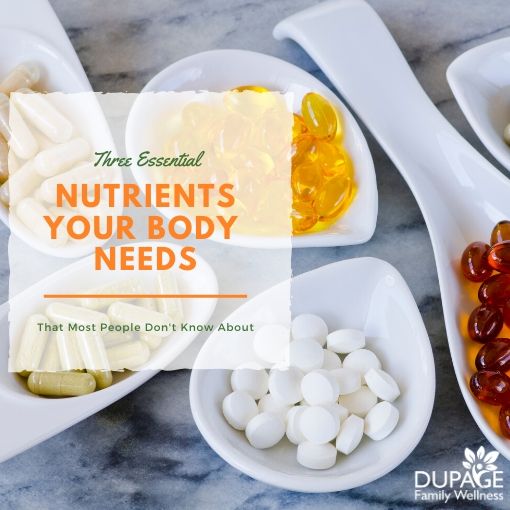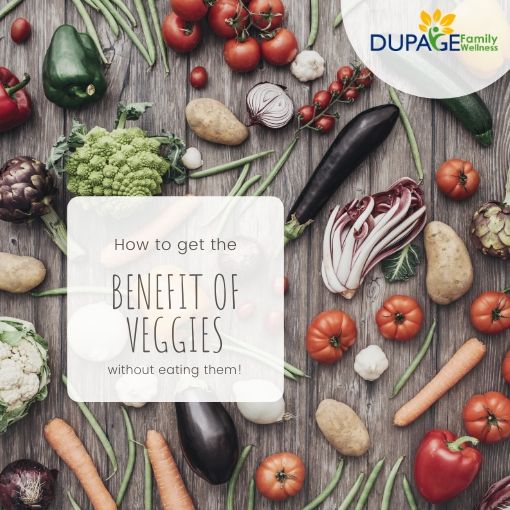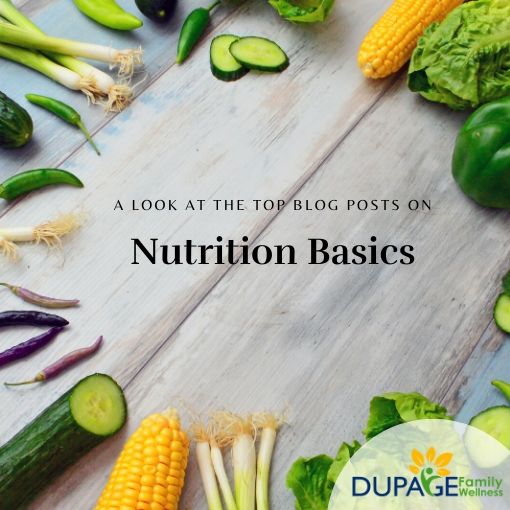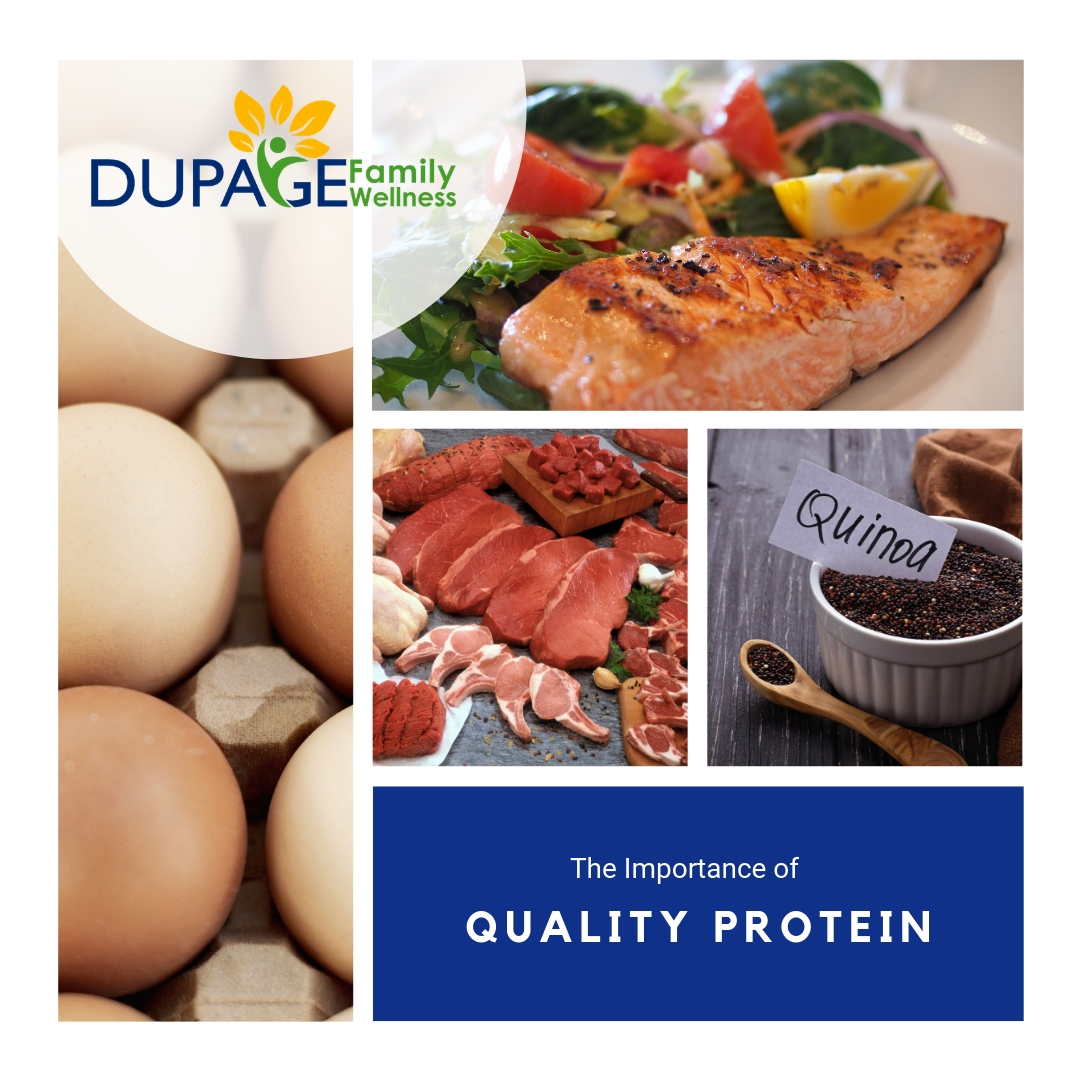 There are many nutrients that your body needs to function at an optimal level. Many of these nutrients get a lot of attention - everyone has heard about vitamin C! But we rarely talk about some other nutrients even though they are vital to your health.
There are many nutrients that your body needs to function at an optimal level. Many of these nutrients get a lot of attention - everyone has heard about vitamin C! But we rarely talk about some other nutrients even though they are vital to your health.
Three of the lesser-known nutrients are Iodine, Choline, and Selenium. Let’s take a look at these nutrients and the important role they play in your health.
Iodine
Iodine is crucial for many systems in your body. It significantly impacts the body’s hormonal systems such as the thyroid and adrenal glands. Iodine is important in balancing the forms of estrogen in a woman's body. It is especially important for women while they are pregnant or breasfeeding. Nearly every tissue in the body needs this nutrient including the breast, prostate, ovaries, brain, stomach, and pancreas. It is an antioxidant, an antiviral, and can help reduce the toxic metal burden from your system.
It is thought that over 70% of the population does not get an adequate amount of iodine. More research is needed to explore how much iodine is needed for optimal health. Since the current recommended daily allowance was only designed to prevent goiters, the dose needed for optimal health is much higher (probably between 5-15mg).
Iodine is a fairly rare mineral and can be difficult to find in a good food source. Adequate amounts are not found in land-based food. In addition, there are many things that compete with iodine for absorption in the body. Things such as fluorine, bromine, and chlorine are considered antagonists that keep us from absorbing this vital nutrient. For this reason, it may be important to consider a good quality supplement.
Read more ...
 We are excited to introduce a lovely brand of loose leaf tea that was created with your emotional wellbeing in mind. Teamotion is a unique company with a story of compassion and healing behind it’s beginning.
We are excited to introduce a lovely brand of loose leaf tea that was created with your emotional wellbeing in mind. Teamotion is a unique company with a story of compassion and healing behind it’s beginning.
Let’s take a quick look at these teas and the story behind them. Be sure to enjoy a cup of one of these teas the next time you come into the office!
Teamotion's Story
This story is one of sisterly love in a time of heartbreaking loss. When Rachel went through the devastating loss of her twin girls shortly after their birth, her sister Crystal came alongside her with compassion and care.
As they looked for help to deal with their grief through books, support groups, and the like, they found it that it simply wasn’t enough. The hard path of grief had no answers.
During this time it seemed like Rachel always had a cup of tea with her. One especially difficult morning, Crystal wedged herself in the armchair next to Rachel and said, “I wish there was something I could put in your tea to make you feel better.”
In that moment, as the sisters looked at each other, the idea of Teamotions was born! As they began their research, they realized that there was no other tea on the market designed to nurture your mind, body, and soul. It took a year and a half to formulate blends that were both therapeutic and delicious, but it was well worth the investment.
Teamotion Products
The quality of these teas and their unique design make them like no other. They are...
Read more ...
 The gyms are full of people who have been eating nutritious foods for a week, determined to get healthier in 2020! With new year’s resolutions fresh on their minds they are extra motivated. Many will follow fad diets until they burn out, while a few will make lasting changes that will impact their health in a positive way.
The gyms are full of people who have been eating nutritious foods for a week, determined to get healthier in 2020! With new year’s resolutions fresh on their minds they are extra motivated. Many will follow fad diets until they burn out, while a few will make lasting changes that will impact their health in a positive way.
It is my desire to support those who want to make real lasting changes to their health by eating real food. This includes lots of fresh veggies, fruit, healthy fats, and quality proteins. Most people would especially benefit from increasing the amount of vegetables in their diet.
Juicing is a great way to get many more servings of vegetables than we would typically consume. Let’s explore the benefits of juicing and learn how to incorporate it in the most beneficial way!
What is Juicing?
“When you drink fresh, live juice, it's almost like receiving an intravenous infusion of vitamins, minerals, and enzymes because they go straight into your body without needing to be broken down. Since juicing is essentially ‘mainlining’ live nutrients, it's no surprise it can produce rapid and profound health benefits.” - Dr. Mercola
Juicing is a process in which the natural liquid, vitamins, and minerals are separated from the pulp of raw fruits and vegetables.
Many people associate juicing with a cleanse, detox, or juicing fast. That is not what I am recommending here! I find that it is extremely beneficial to add juicing to a nutrient-rich diet of whole foods.
Read more ...
 It can be extremely hard to make healthy choices throughout the Holidays! In this week’s guest blog The Nutrition Doula will share some simple tips to help you stay on track AND enjoy this holiday season. Alasen Zarndt is not just the Nutrition Doula, she is also my friend. I can tell you she is passionate about helping women fuel their bodies so they can feel their best.
It can be extremely hard to make healthy choices throughout the Holidays! In this week’s guest blog The Nutrition Doula will share some simple tips to help you stay on track AND enjoy this holiday season. Alasen Zarndt is not just the Nutrition Doula, she is also my friend. I can tell you she is passionate about helping women fuel their bodies so they can feel their best.
As a health, wellness, and nutrition coach, Alasen specializes in coming alongside new mothers during their pregnancy and postpartum years. However, the philosophy of using real, everyday foods to care for yourself and your family is applicable throughout every stage of life!
Read more ...
 As the weather gets colder, many of us turn to a warm cup of tea for a bit of comfort. This can become a lovely ritual at the beginning or end of the day. It can provide a moment of solitude when paired with reading a book, watching a show, or writing in a gratitude journal. For others it may be an opportunity for connection by enjoying it in person (or even over the phone) with a friend or loved-one.
As the weather gets colder, many of us turn to a warm cup of tea for a bit of comfort. This can become a lovely ritual at the beginning or end of the day. It can provide a moment of solitude when paired with reading a book, watching a show, or writing in a gratitude journal. For others it may be an opportunity for connection by enjoying it in person (or even over the phone) with a friend or loved-one.
But the benefits of good quality tea can go beyond that of simple comfort. Many herbs have incredible healing properties that can support many systems in the body. Let’s take a look at one of these herbs today and learn how stinging nettles can improve your health.
What are Stinging Nettles?
Urtica dioica is known as common or stinging nettle. It is a perennial flowering plant native to Europe, as well as parts of Asia and North Africa. Not all of the plants are stinging, but those that do have trichomes on the leaves and stems. These hollow stinging hairs act like hypodermic needles, and inject histamine and other chemicals upon contact. When this happens it produces a stinging sensation. As unpleasant as that sounds, when harvested and prepared properly stinging nettle has many health benefits.
Read more ...
 Fall is upon us, and the holidays will be here before we know it. Approaching the season with a solid nutritional base, will enable us to enjoy the holidays without letting them derail us!
Fall is upon us, and the holidays will be here before we know it. Approaching the season with a solid nutritional base, will enable us to enjoy the holidays without letting them derail us!
Let’s take a look at some of the top nutrition blog articles, and use them as a checkpoint to make sure we are on track.

Quality Protein
Read more ...
 There are many nutrients that your body needs to function at an optimal level. Many of these nutrients get a lot of attention - everyone has heard about vitamin C! But we rarely talk about some other nutrients even though they are vital to your health.
There are many nutrients that your body needs to function at an optimal level. Many of these nutrients get a lot of attention - everyone has heard about vitamin C! But we rarely talk about some other nutrients even though they are vital to your health. 

 We are excited to introduce a lovely brand of loose leaf tea that was created with your emotional wellbeing in mind. Teamotion is a unique company with a story of compassion and healing behind it’s beginning.
We are excited to introduce a lovely brand of loose leaf tea that was created with your emotional wellbeing in mind. Teamotion is a unique company with a story of compassion and healing behind it’s beginning.  The gyms are full of people who have been eating nutritious foods for a week, determined to get healthier in 2020! With
The gyms are full of people who have been eating nutritious foods for a week, determined to get healthier in 2020! With  It can be extremely hard to make healthy choices throughout the Holidays! In this week’s guest blog
It can be extremely hard to make healthy choices throughout the Holidays! In this week’s guest blog  As the weather gets colder, many of us turn to a warm cup of tea for a bit of comfort. This can become a lovely ritual at the beginning or end of the day. It can provide a moment of solitude when paired with reading a book, watching a show, or writing in a gratitude journal. For others it may be an opportunity for connection by enjoying it in person (or even over the phone) with a friend or loved-one.
As the weather gets colder, many of us turn to a warm cup of tea for a bit of comfort. This can become a lovely ritual at the beginning or end of the day. It can provide a moment of solitude when paired with reading a book, watching a show, or writing in a gratitude journal. For others it may be an opportunity for connection by enjoying it in person (or even over the phone) with a friend or loved-one. Fall is upon us, and the holidays will be here before we know it. Approaching the season with a solid nutritional base, will enable us to enjoy the holidays without letting them derail us!
Fall is upon us, and the holidays will be here before we know it. Approaching the season with a solid nutritional base, will enable us to enjoy the holidays without letting them derail us!
